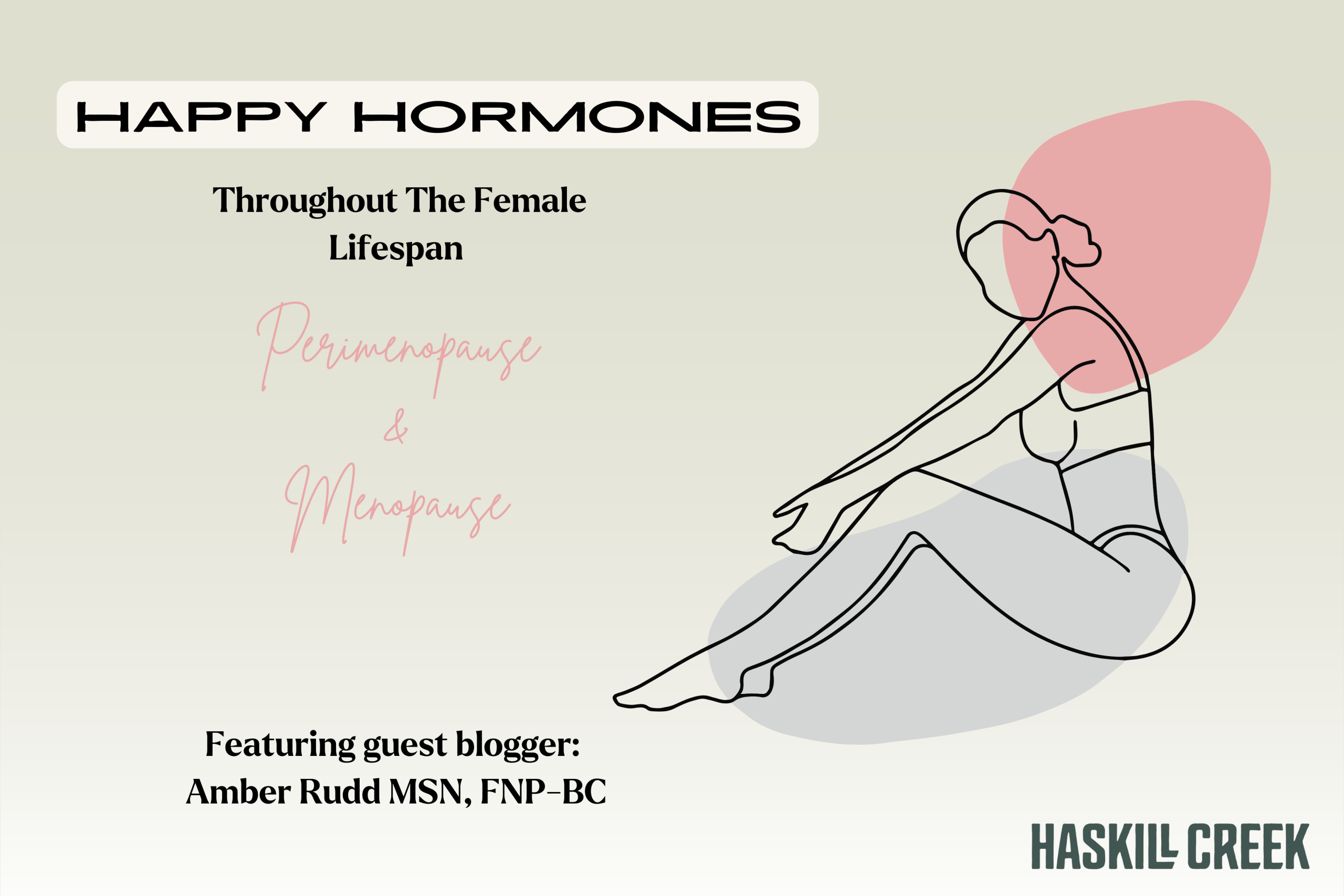Happy Hormones Series: Perimenopause & Menopause

The Perimenopausal & Menopausal Years
Ovarian reserves start declining in the late 30s and 40s- this causes hormone output to be more chaotic. For women affected, this can lead to symptoms such as mood changes, hot flashes, brain fog, and disrupted sleep.
For these women, I focus on optimizing metabolic health and decreasing inflammation. Optimizing gut health and identifying food sensitivities can play a big role. This is especially true if inflammation is the primary driver.
As a Functional Medicine NP I recommend:
-
Focusing on getting enough protein
-
Stabilizing blood sugar levels
-
Optimizing the circadian rhythm
These can all be game changers.
Additionally, I generally recommend:
-
Getting 7-9 hours of sleep and
-
Getting 10 minutes of natural light on the eyes in the morning
-
Minimizing blue light exposure at night
These can make all make a huge difference.
Thyroid & Adrenals
Optimizing thyroid function and adrenal hormones is also important. Doing the steps mentioned above, while also emphasizing stress reduction can be extremely helpful.
I recommend working with a provider who will check a full blood panel.
This includes:
-
Full Thyroid Panel (can detect if you are hyperthyroid or hypothyroid)
-
Thyroid Antibodies (can detect autoimmune conditions of the thyroid)
-
Full Iron Panel
-
B12 and Folate
-
Homocysteine
-
Insulin
-
Hemoglobin A1c
-
Inflammatory Markers
-
Vitamin D
-
Lipid Panel
-
Zinc
-
Copper
-
Complete Blood Count
-
Complete Metabolic Panel
It’s during this time that we can start thinking about bringing on some nutraceutical support and/or Bioidentical Hormone Replacement if needed. Before starting Bioidentical Hormone Replacement Therapy (BHRT), I recommend always checking a full extended blood panel and hormone panel. It's best to work with a Functional Medicine provider who is familiar with interpreting these results.
Next in our series…
Happy Hormones Series V: Post Menopause

Sign up for our newsletter!
Join to get the Haskill Newsletter and be the first to learn about new products, events, and other goings-on at Haskill Creek!









